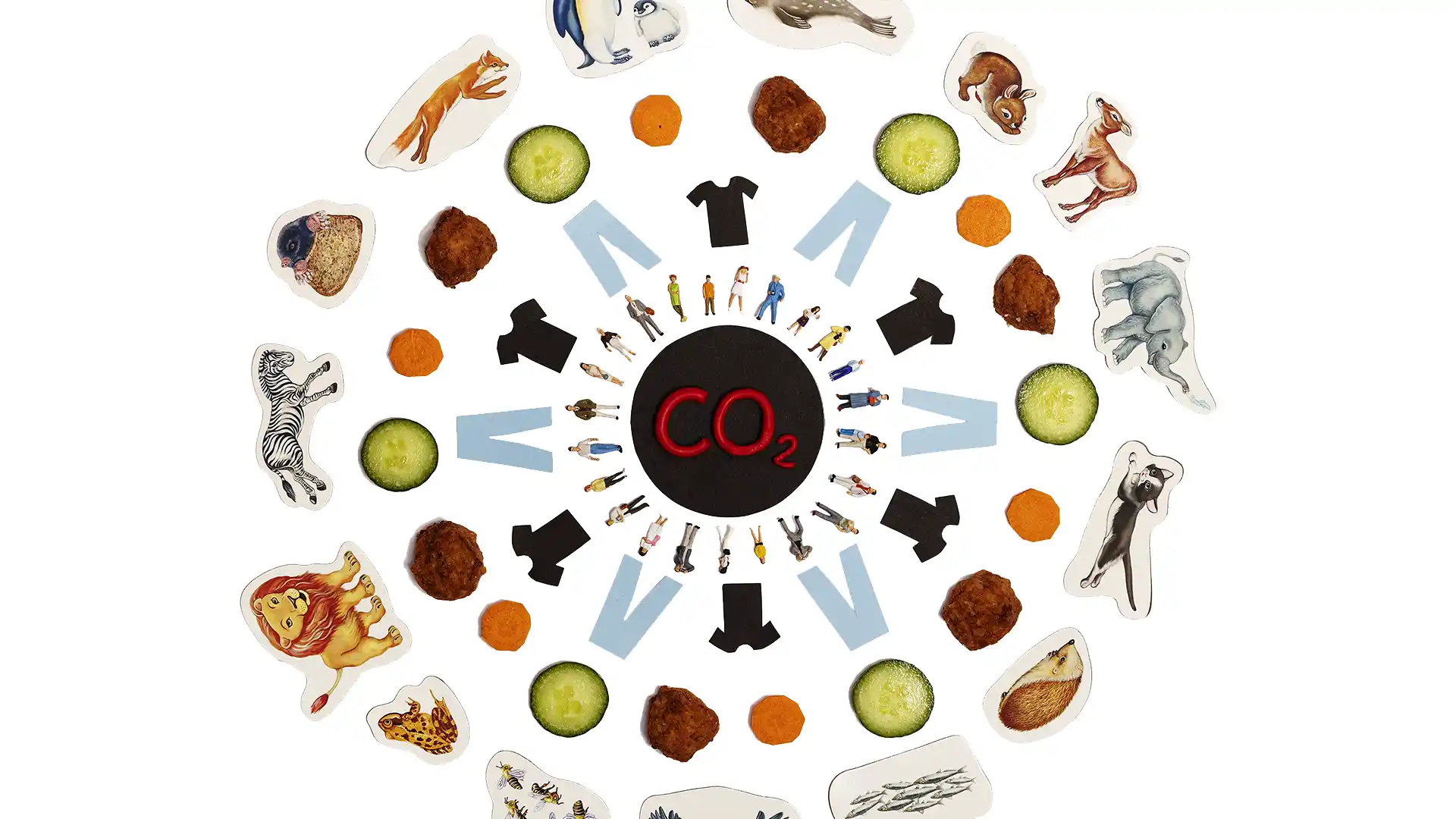Beyond the carbon tunnel vision
Our focus on CO2 emissions and the climate crisis makes us forget about other societal and environmental challenges that are equally important. It’s crucial that we now ensure that innovations solve problems from a broader perspective, says Markus Ahlberg, Chief Sustainability Officer at Schibsted.
By Markus Ahlberg

Beyond the carbon tunnel vision
Our focus on CO2 emissions and the climate crisis makes us forget about other societal and environmental challenges that are equally important. It’s crucial that we now ensure that innovations solve problems from a broader perspective, says Markus Ahlberg, Chief Sustainability Officer at Schibsted.
By Markus Ahlberg
We are at the epicentre of a great acceleration of parallel and interconnected societal and environmental developments. Over the past decades, we have witnessed exponential growth in technology and GDP. Delving into details, we also see exponential changes, both positive and negative, in many areas. There’s positive acceleration, such as increased living standards, a connected world, and technological advancements. But there are also negative trends, like growing inequality, depletion of natural resources, and ecosystem breakdowns. All these accelerations share a common source: they are driven by human activity. This parallel chaos is the world we live in, and we must address it when building our future because all these developments are interconnected.
The notion that the climate crisis is the sole key to a sustainable future paints an oversimplified picture of our journey towards a greener future.

A too narrow focus on carbon emissions might exacerbate other issues or even create new problems.

A too narrow focus on carbon emissions might exacerbate other issues or even create new problems.
A broader perspective should consider areas such as equality, biodiversity and overconsumption of natural resources. For example, using wind power to combat climate change sounds great, but it can harm biodiversity and the local communities where the wind farms operate. The same complexity arises with the idea of electric vehicles as saviours of a fossil-free world. But the need for mineral extraction can harm water and biodiversity. We need to change the narrative that climate is the only issue we need to tackle because the reality is much more complex than that. And a too narrow focus on carbon emissions might exacerbate other issues or even create new problems.
Embracing Holistic Sustainability
By broadening our perspective to encompass and understand important societal and environmental developments and systems, we can uncover layers of complexity that deserve and require our attention.
The Ecosystem Symphony
True environmental sustainability extends beyond carbon emissions to encompass the complete symphony of the ecological interactions that shape our world. Biodiversity, access to natural resources, and the delicate balance of ecosystems are all intertwined. A broader perspective requires acknowledging the fragile harmony that we must safeguard.
A narrow focus on carbon emissions falls short in addressing the overconsumption of natural resources, the ripple effects of species decline, or the cascading benefits of biodiversity preservation.
AI might offer a solution to apply systemic thinking, handle complexity and build models that balance all important areas, simultaneously.


AI might offer a solution to apply systemic thinking, handle complexity and build models that balance all important areas, simultaneously.
Social Threads in Sustainability
Sustainability isn’t just an environmental effort; it’s deeply connected to social equity and justice. For example, communities disproportionately affected by environmental degradation deserve recognition beyond a carbon-centric perspective. An illustrative example is how those of us in the Nordics, who will be less affected by climate change, should have a responsibility to support those in southern Europe who might need to migrate in ten years due to heat waves caused by a changing climate.
An inclusive sustainability narrative recognises the ripple effects of inequities and emphasises the importance of equitable solutions. If equality factors are not included in sustainability calculations, trust and democracy may be at risk, given the role equality plays in holding our society together.
A Financial Mosaic
The carbon tunnel analogy sometimes overlooks the economic intricacies that underpin sustainable development. Transitioning to cleaner energy sources entails grappling with economic dynamics, job transitions and the macroeconomic implications of a global shift. Sustainability, therefore, involves as much financial evolution as it does environmental change.
Consider the economic transitions that occur when communities reliant on carbon-intensive industries shift to renewable energy sources. The tunnel might obscure the struggles of communities facing job losses and economic uncertainty. By widening our perspective, we recognise the importance of just transition strategies that ensure economic resilience while forging a sustainable path forward.
Embracing new technologies
True sustainability depends on rethinking human behaviours, policy frameworks, and systemic shifts that go beyond technological boundaries. Recent technological developments related to artificial intelligence provide hope for new solutions to address our current narrow focus. Since the human brain appears limited in its ability to find comprehensive solutions, understand exponential change, and grasp the complexity of systems, technology like AI might offer a solution to apply systemic thinking, handle complexity and build models that balance all important areas, simultaneously.
Regardless of technological advancements, navigating the intricate path of sustainability requires breaking free from the tunnel’s constraints and embracing a comprehensive approach that weaves together environmental conservation, social equity, economic transformation, cultural understanding, and sound technological innovation.
[Sassy_Social_Share]

Markus Ahlberg
Chief Sustainability Officer, Schibsted
Years in Schibsted: 3
My favourite song the last decade: How Loud Your Heart Gets – Lucius